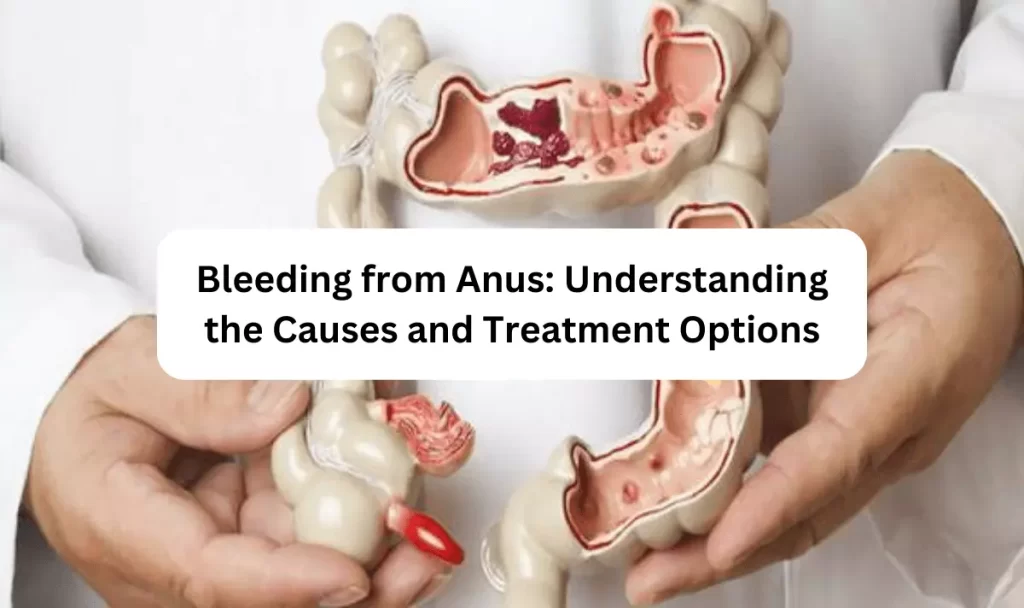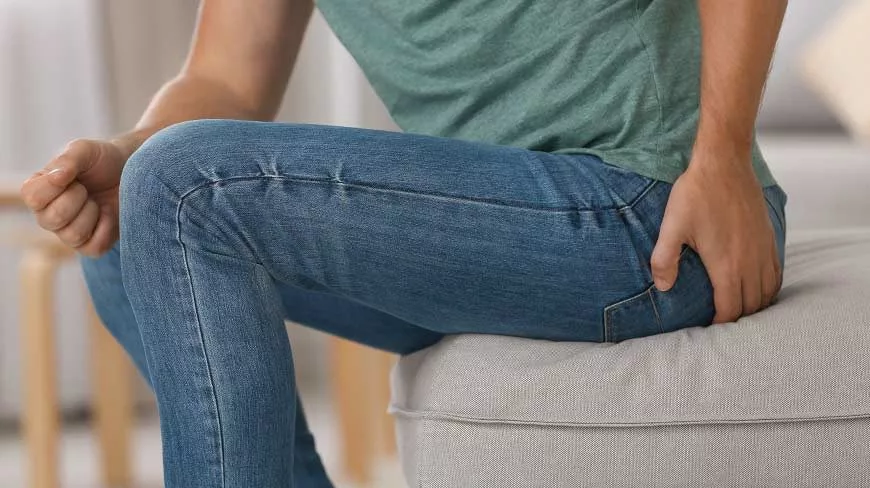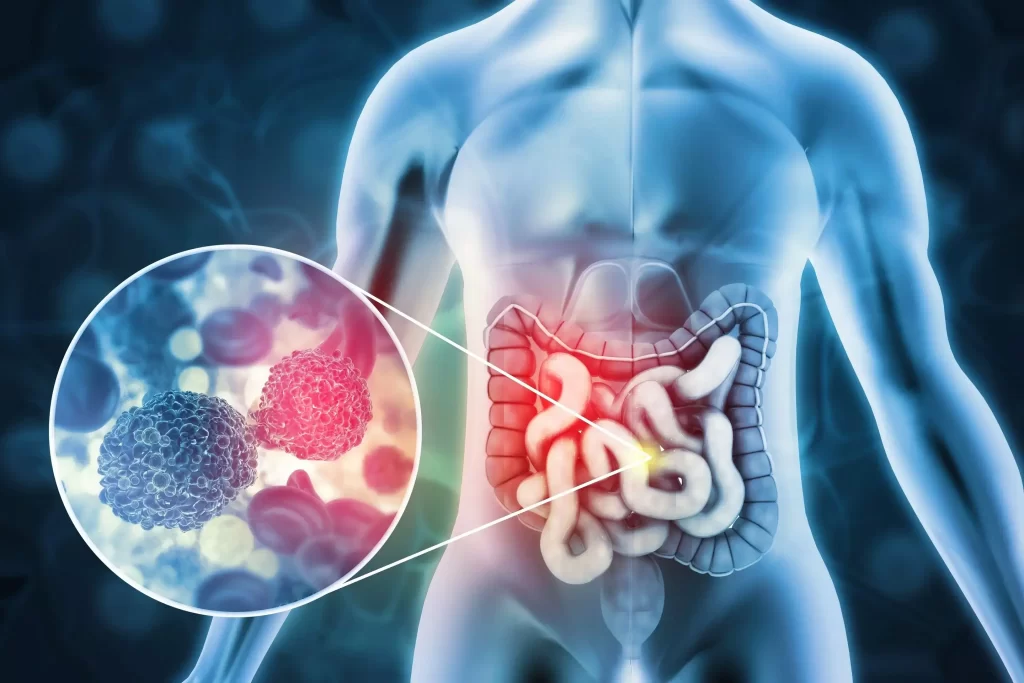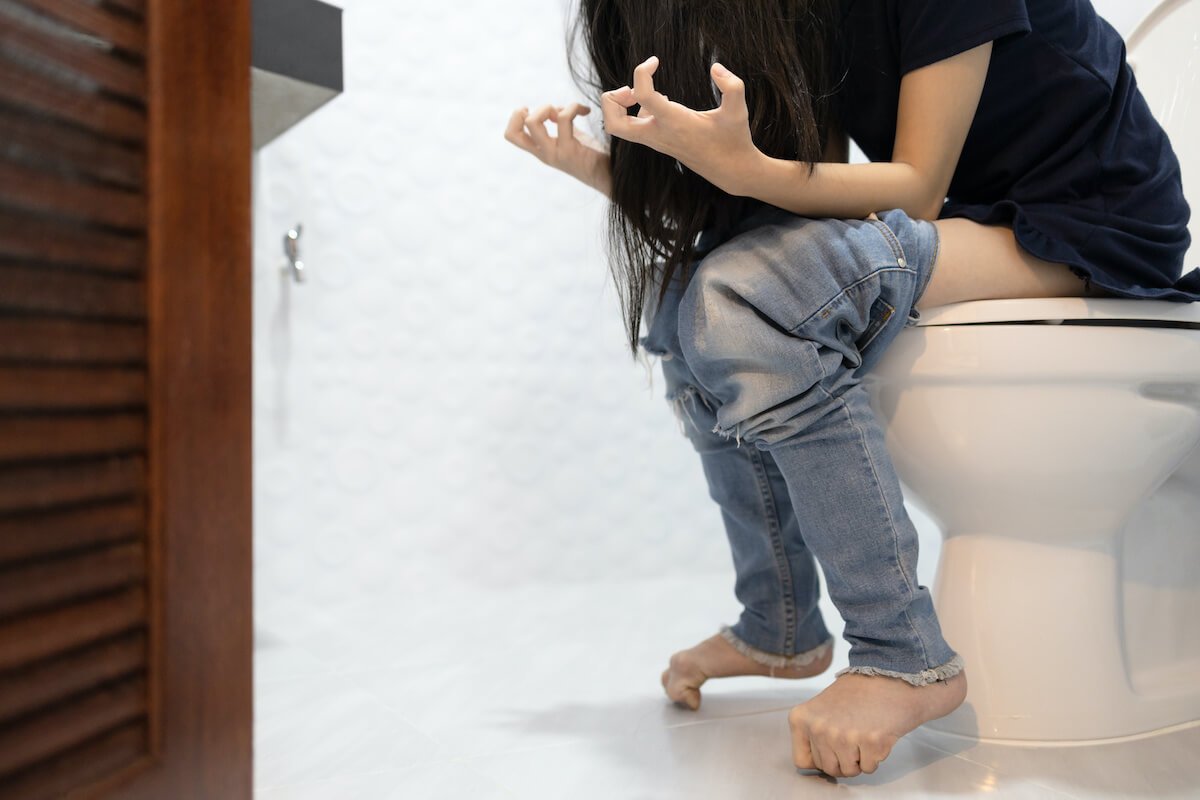
Bleeding from the anus can be a concerning and uncomfortable symptom. While it can be alarming, it’s important to remember that there are various potential causes for this condition. In this article, we will explore the common causes of bleeding from the anus when there is no pain or bowel movement, and discuss available treatment options. Understanding the underlying reasons for this symptom will help you make informed decisions about your health.
May you also like this: Water Trick for Eyesight: An Effective Approach to Improve Vision Naturally
Content
Understanding the Anatomy of the Anus
Before delving into the causes and treatment options, it’s essential to have a basic understanding of the anatomy of the anus. The anus is the opening at the end of the digestive tract through which waste material, known as feces, is expelled from the body. It consists of two sphincters: the internal sphincter and the external sphincter. The internal sphincter is involuntary and helps to control the passage of stool, while the external sphincter is voluntary and can be consciously controlled.
Causes of Bleeding from the Anus without Pain or Bowel Movement

- Hemorrhoids
Hemorrhoids are swollen blood vessels in the anus or lower rectum that can cause bleeding. They can be internal or external, and both types can lead to bleeding, especially during bowel movements. Hemorrhoids are often associated with itching, discomfort, and a feeling of fullness in the rectum.
- Anal Fissures
Anal fissures are small tears or cracks in the lining of the anus, typically caused by the passage of hard or large stools. These fissures can cause bleeding during bowel movements and may be accompanied by pain or discomfort. In some cases, anal fissures can be chronic and require medical intervention.
- Polyps
Polyps are abnormal growths that can develop in the lining of the colon or rectum. While most polyps are benign, some can bleed and lead to noticeable blood in the stool or on toilet paper. Regular screening for polyps is crucial as they can potentially develop into cancerous growths.
- Rectal Ulcers
Ulcers are open sores that can form in the lining of the rectum. They can cause bleeding and may be associated with other symptoms such as abdominal pain, diarrhea, or weight loss. Rectal ulcers can be caused by various factors, including inflammatory bowel disease and infections.
- Inflammatory Bowel Disease
Inflammatory bowel disease (IBD) is a chronic condition characterized by inflammation in the digestive tract. Both Crohn’s disease and ulcerative colitis, the two main types of IBD, can cause bleeding from the anus without pain orbowel movement. The inflammation in the intestinal lining can lead to ulcers, which can result in bleeding.
- Gastrointestinal Infections
Certain infections, such as bacterial or viral gastroenteritis, can cause inflammation and irritation in the digestive tract, including the anus. This inflammation can lead to bleeding, even in the absence of pain or bowel movement issues. Gastrointestinal infections are often accompanied by other symptoms like diarrhea, nausea, and abdominal cramping.
- Colorectal Cancer

While less common, colorectal cancer can also cause bleeding from the anus. In the early stages, it may not be accompanied by pain or changes in bowel movements. However, as the cancer progresses, other symptoms such as abdominal pain, weight loss, and changes in bowel habits may occur. It’s essential to be vigilant about any rectal bleeding and consult a healthcare professional for proper evaluation.
- Medications and Blood Thinners
Certain medications, such as blood thinners, can increase the risk of bleeding from the anus. These medications reduce the blood’s ability to clot, making it easier to experience bleeding, even with minimal trauma. If you’re taking any medications and notice rectal bleeding, consult your healthcare provider to determine if the medication could be a contributing factor.
Diagnosing the Cause
When experiencing rectal bleeding without pain or bowel movement issues, it’s crucial to seek medical evaluation. A healthcare professional will perform a thorough examination and may recommend further tests to determine the underlying cause. These tests may include a colonoscopy, sigmoidoscopy, stool tests, blood tests, or imaging studies, depending on the suspected cause.
Treatment Options
The treatment for bleeding from the anus without pain or bowel movement issues depends on the underlying cause. Here are some common treatment options:
- Home Remedies and Lifestyle Changes
For mild cases of bleeding, certain home remedies and lifestyle changes can help alleviate symptoms. These include increasing fiber intake, drinking plenty of water, practicing good anal hygiene, and avoiding straining during bowel movements. These measures can be beneficial for conditions like hemorrhoids or minor anal fissures.
- Over-the-Counter Medications
Over-the-counter topical creams, ointments, or suppositories may provide relief for certain conditions like hemorrhoids or anal fissures. These products can help reduce inflammation, itching, and discomfort. However, it’s essential to follow the instructions and consult a healthcare professional if symptoms persist or worsen.
- Medical Procedures
In some cases, medical procedures may be necessary to address the underlying cause of rectal bleeding. Procedures like rubber band ligation or sclerotherapy can effectively treat hemorrhoids. Anal fissures may require treatments like botox injections or surgical repair. Polyps and rectal ulcers can be removed or biopsied during a colonoscopy or sigmoidoscopy.
- Surgical Interventions
If conservative measures and medical procedures are not effective, surgical interventions may be considered. This can include procedures like hemorrhoidectomy, sphincterotomy, or resection of the affected tissue. Surgical interventions are typically reserved for severe or chronic cases and require careful evaluation and consultation with a specialist.
Prevention Tips

While it’s not always possible to prevent rectal bleeding, you can take certain measures to reduce the risk. Here are some preventive tips:
- Maintain a high-fiber diet to promote regular and soft bowel movements.
- Stay hydrated by drinking an adequate amount of water throughout the day.
- Practice good anal hygiene, including gentle wiping and avoiding excessive wiping or the use of harsh toilet paper.
- Engage in regular exercise to promote healthy digestion and bowel movements.
- Avoid prolonged sitting on the toilet, as it can contribute to hemorrhoids and anal fissures.
- If you’re at an increasedrisk for colorectal cancer or have a family history of the disease, consider regular screenings and follow your healthcare provider’s recommendations.
When to Seek Medical Attention
While occasional rectal bleeding without pain or bowel movement issues may not be a cause for immediate concern, it’s important to consult a healthcare professional if:
- The bleeding persists or worsens over time
- You experience additional symptoms such as abdominal pain, changes in bowel habits, or weight loss
- You have a personal or family history of colorectal cancer or other gastrointestinal conditions
- You’re taking medications that may increase the risk of bleeding
A healthcare professional can provide an accurate diagnosis and recommend appropriate treatment based on your specific condition.
Conclusion
Bleeding from the anus without pain or bowel movement issues can be a worrisome symptom. However, understanding the potential causes and available treatment options can help alleviate concerns. From common conditions like hemorrhoids and anal fissures to more serious issues like colorectal cancer, early detection and proper medical evaluation are crucial. By seeking timely medical attention and implementing preventive measures, you can effectively manage and treat rectal bleeding.
FAQ
u003cstrongu003eCan stress or anxiety cause bleeding from the anus?u003c/strongu003e
While stress and anxiety can contribute to digestive issues, there is no direct evidence linking them to rectal bleeding. However, stress may exacerbate certain conditions like inflammatory bowel disease or gastrointestinal infections, which can result in bleeding.
u003cstrongu003eAre there any natural remedies for treating rectal bleeding?u003c/strongu003e
Certain natural remedies, such as witch hazel, aloe vera, or warm sitz baths, may provide temporary relief for conditions like hemorrhoids or anal fissures. However, it’s important to consult a healthcare professional before using any natural remedies to ensure they are safe and appropriate for your condition.
u003cstrongu003eHow can I prevent hemorrhoids and anal fissures?u003c/strongu003e
To prevent hemorrhoids and anal fissures, it’s important to maintain a high-fiber diet, drink plenty of water, exercise regularly, and practice good anal hygiene. Avoid straining during bowel movements and consider incorporating stool softeners or fiber supplements if necessary.
u003cstrongu003eIs rectal bleeding always a sign of cancer?u003c/strongu003e
No, rectal bleeding does not always indicate cancer. Many cases of rectal bleeding are caused by less severe conditions such as hemorrhoids, anal fissures, or gastrointestinal infections. However, it’s important to consult a healthcare professional to determine the underlying cause and receive proper diagnosis and treatment.
u003cstrongu003eWhat should I do if the bleeding is heavy or accompanied by severe pain?u003c/strongu003e
If you experience heavy rectal bleeding or severe pain along with bleeding, seek immediate medical attention. These symptoms may indicate a more serious condition that requires prompt evaluation and treatment.

Nancy Bonney is a health blogger and the founder of her own blog about fitness. She has been blogging for three years now and loves to share what she learns with others. Nancy enjoys reading, cooking, and staying active outdoors.












